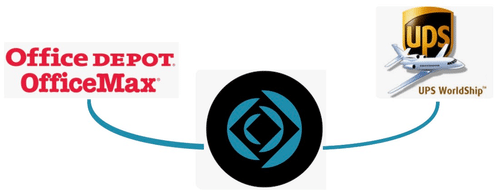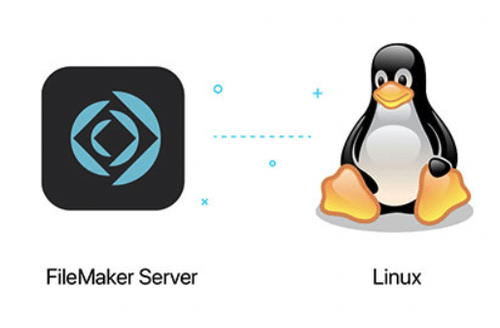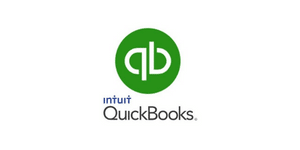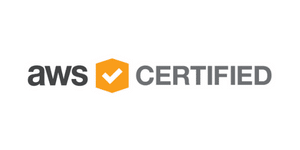An Interview With Xandon Frogget
Claris FileMaker Pro is well known as a low-code, rapid application development environment, and many firms utilize their own in-house FileMaker developers. Many a business owner or manager has rolled up their shirt sleeves, taught themselves FileMaker, and written their own business automation app. So, why hire a FileMaker developer, instead of continuing to develop your solution in-house?
I’m going to use a construction analogy here … would you hire a builder who was building their first house? We have been building Claris FileMaker Pro solutions for over 30 years and with our current team we have over 100 years of combined development experience. In addition, we can often use code we’ve written for other projects on a new project, saving time and money.
Xandon Frogget, Senior Application Developer
To get at this question from a different angle, I asked one of our senior developers, Xandon Frogget, to join me in a discussion about his role at Portage Bay Solutions.
How long have you been a FileMaker developer?
I started as a software developer in 1998, so about 24 years, with the last 7 being at Portage Bay.

Why did you choose to become a FileMaker developer?
I started out writing a small application for a family business to do key tracking for a locksmithing company. My dad was doing relational database development on Windows, which was pretty clunky at the time.
I was a Mac user and gravitated towards FileMaker somewhat organically. I had asked a friend to create the FileMaker app for me, but it started to evolve into a bit of a mess. Shortly after, I took over the FileMaker developer role on the project. Impressed with how easy it was to automate processes, I started doing similar work for other companies, and here we are 24 years later!
You worked at Office Depot (now merged with OfficeMax) before coming to Portage Bay. Tell us a little about the work you did there?
I worked in the commercial print shop division at Office Depot, where we eventually built six commercial print shops at various geographical locations. This was my first major role as a FileMaker Pro developer, and it grew very organically, automating more and more tasks as people realized how well, and how quickly, the software could take over paper-based workflows and involve multiple aspects.

Over the years, the FileMaker application evolved to very effectively connect workflows which used to be separate. Connecting to web sites, UPS Worldship, etc… were key parts of FileMaker’s success at OfficeMax.
I know you’ve been doing a lot of Javascript, Web app, and game development in the time you’ve worked with us at Portage Bay. Why have you stayed with FileMaker, given all the options out there?
FileMaker Pro really shines when it comes to acting as a hub for various complex systems and tasks. Even a small office has a variety of different places they have to go to accomplish all the things they do each day. FileMaker Pro allows us to create a single point where the interactions between these different systems can be managed well.
FileMaker Pro’s low cost of development makes it possible to experiment cost-effectively when requirements are uncertain. It lets customers see how the app is going to work and then provides feedback for fine-tuning, without it costing a fortune to redo things.
A large monolithic web app solution with complex requirements doesn’t allow for the same kind of agile development that FileMaker Pro makes easy.
What do you like about working for a FileMaker development company vs being an in-house developer?
➡ Being Part of a Team
I think it’s a few things – while I consider myself a capable software developer on my own, there is a great deal of value in being able to work with other FileMaker Pro developers and be part of a development team. Sharing expertise, reviewing code together, and being able to leverage the skill sets of each team member are all big advantages of being part of a FileMaker development company. This lets me develop better, more complete projects, and I get a lot of job satisfaction from that.
➡ Using Cutting Edge Claris FileMaker Techniques
The second thing I really like is being able to explore a variety of projects, often on the cutting edge of Claris FileMaker development techniques. Being able to implement similar techniques in multiple solutions helps me get better with each iteration.
➡ Enhancing User Interface
And a third one is that we have a chance to experiment with user interface design in a variety of systems, stretching those Claris FileMaker developer skills as well.
Why do you think a FileMaker Pro project is a good investment for our clients?
I think the Claris FileMaker platform is an industry-leading low-code development environment for starters but, more importantly, well-designed FileMaker based software solutions will decrease the amount of work that you have to do in a given day and will make you more productive.
If you’re using Excel to manage existing data and reports, you’re likely manually gathering information from a variety of sources. Automating that in a FileMaker Pro solution can be a big time saver.
On top of that, FileMaker Pro helps assure that the data is clean and consistent and makes it accessible in a variety of ways (mobile, web, remote, etc…). There aren’t many business systems that can improve productivity as significantly as a Claris FileMaker solution.
Why do you think a business should choose to hire a FileMaker developer through a company like Portage Bay on a project, versus doing it themselves?
I’m going to use a construction analogy here … would you hire a builder who was building their first house? We have been building Claris FileMaker Pro solutions for over 30 years and with our current team we have over 100 years of combined development experience. In addition, we can often use code we’ve written for other projects on a new project, saving time and money.

We also take our role as professional FileMaker Pro developers seriously. We thoroughly document our work and our processes so that success can be repeated and are not a matter of luck. Having a project manager on our team really helps us guide projects and keep both ourselves and our clients on time and on budget.
What is your favorite project in the last year?
I love challenges. For me, two come to mind from this year. The first is the QuickBooks Online integration we did for one client. The other was the Google API/OAuth 2.0 project where we used the resulting code for a couple of clients. Both integrations lay the groundwork for a huge number of possibilities, and both have wide horizontal implications across a broad range of clients.

It was nice that the two projects leveraged each other technically. The work on handling URIs (Universal Resource Identifier) I did in the Google integration directly informed similar work in the QuickBooks Online integration.
Do you do any work with Claris FileMaker Server? Any thoughts on the current version of FileMaker Server?
I’m primarily a FileMaker developer, but I definitely do some work with FileMaker Server as a part of that role. I do server management tasks for a couple of the larger clients I work with, usually in tandem with other team members at Portage Bay. It’s been really helpful in recent years as we’ve brought on a project manager and an IT managed services firm to help in some of these areas.
The ability to see the logs right in the server admin console, and to layer several types of logs together, is especially helpful. As we work more with the Linux Ubuntu version of FileMaker Server, I’m looking forward to learning more in that area.
Overall, the ongoing improvement in performance and stability is always welcome.

Learning new things is a constant in the tech world and for all FileMaker Pro developers. What are you working on currently?
OAuth & QuickBooks
The big one for me right now is OAuth 2.0 and QuickBooks integration with FileMaker Pro. I’ve been refining our approach to this on a recent project and making big improvements over previous QuickBooks integrations we’ve worked on.

Shopify
A second area I’m working on right now is refactoring an old Shopify integration we have in production for one of our clients. I’m learning a lot about Shopify’s GraphQL interface and am really liking GraphQL (vs REST).

AWS Cloud Practitioner
And a third area I’m excited to be working on is myAmazon Web Services Cloud Practitioner certification. I’m taking an online course and hope to pass the certification exam soon.

We’re developing more and more on cloud hosted solutions these days. Any thoughts on Claris FileMaker Cloud or database development planning for the cloud?
Definitions can vary, but a ‘cloud hosted solution’ could be any FileMaker Pro solution that is accessible over the internet and I’m a big fan. It gives clients a lot of options and flexibility, often at reduced cost.
We use both a private cloud network as well as AWS EC2 servers for our cloud hosting. Many of our clients have ‘on premise’ servers that are technically ‘in the cloud’ also, since they’re accessible over the internet.
I love Claris FileMaker Cloud for our small clients. You just can’t beat the price of FileMaker Cloud Essentials for a modest-sized FileMaker Pro solution.
You do a lot of third-party API work at Portage Bay. What do you like (or dislike) about working with APIs so much?
I love working with APIs. It opens up so much opportunity for FileMaker Pro to integrate with apps that previously had been inaccessible or very difficult to access.
The syntax and development techniques for API integration have become as comfortable to me as native FileMaker Pro!
It’s a little harder to estimate accurately the time it takes to develop an integration with a new API, but each new API we work with is like adding one more tool to our toolbox.
What do you think leads our customers to hire a FileMaker developer and work with us on a software development project, rather than simply live with existing software functionality?
Really the opportunity to grow their business over time or make their organization more efficient because of greater productivity and new capabilities.
To close out, any thoughts on the new Claris Platform, especially Claris Studio?
Personally I haven’t had a chance to work with these new tools a great deal yet. I’m excited to see Claris addressing the need for more flexible web tools in FileMaker Pro. I’m really looking forward to experimenting with Claris Studio, the new web front end.
Ready to hire a Claris FileMaker developer to bring your workflows to a new level?
Now that you’ve heard some of Xandon’s background and insight, perhaps you’re inspired to see how his experience, or that of our other application developers, can inform your project in a deeper way.
You have the skills, but do you have the time? Or perhaps you’ve got a lot of time to focus on what you’d like to achieve, but you need some assistance on the technical side.
We thrive on helping bridge those gaps. When you work with Portage Bay, you get the benefit of our bird’s eye view, and our experience gained from having worked on hundreds of projects over three decades.
Send us a note, or schedule a Calendly call, and let’s get to talking about the possibilities!